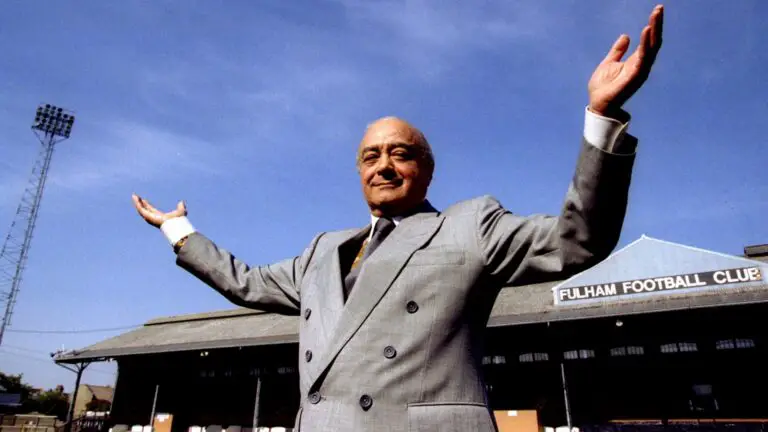Mohamed Al-Fayed’s Changed Perspective on Tragic Accident Involving Son Dodi and Princess Diana
In a surprising shift of perspective, Mohamed Al-Fayed had begun to come to terms with the tragic car crash that claimed the lives of his son Dodi and Princess Diana, according to a former close aide. The once contentious relationship between Al-Fayed and the Royal Family seemed to soften in his later years, even extending to an olive branch from Prince William.
For years, Al-Fayed had strongly accused the Royal Family and security services of being responsible for the deaths of his son and Princess Diana. However, in recent times, he seemed to withdraw from directly blaming a conspiracy led by Prince Philip. This suggests that he might have been quietly accepting that the incident was indeed an accident.
Royal expert Ingrid Seward shared an intriguing insight from the Queen, who once mentioned that enemies of Al-Fayed might have been behind the crash by tampering with the brakes. This revelation adds another layer to the mysterious event that occurred in 1997.
Egyptian-born Al-Fayed passed away at the age of 94, coinciding with the 26th anniversary of the tragic accident. He had consistently held the view that the Royal Family was involved in a sinister plot, and even accused Prince Philip and British Security Services of orchestrating a “death plot.”
The inquest in 2008 concluded that Diana and Dodi were unlawfully killed in the crash. Over the years, Al-Fayed’s perspective evolved. He went from being vocally critical of the Royal Family to discussing a more generalized “Establishment” conspiracy. His later years indicated a shift towards accepting the possibility of an accident, as evidenced by his reduced emphasis on the conspiracy theory.
Al-Fayed’s relationship with Prince William held a unique dimension. Prince William extended an olive branch by inviting Al-Fayed’s daughters to a memorial service for Diana in 2007. This gesture signaled a potential bridge between the two families, as Al-Fayed had developed a fondness for both William and Harry.
As time passed, Al-Fayed seemed to mellow in his views, and his connection with the Royal Family underwent changes. It’s possible that his evolving stance was driven by personal reflections and the passage of time.
Al-Fayed’s funeral took place at the Central London Mosque, with tributes pouring in from various quarters. Despite his controversial reputation, his complex character left an indelible mark on those who knew him.

